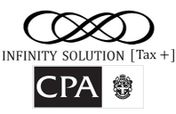
From Student to Expert: How to Become a CPA in Australia
Introduction
Becoming a CPA (Certified Public Accountant) in Australia is not simply about numbers; it's a transformative journey that requires commitment, understanding, and strategic planning. The landscape of accounting in Australia is both dynamic and competitive, making the role of a CPA extremely considerable. This article will assist you through every action of this journey-- from your initial education as a trainee to ending up being a fully-fledged professional.
Understanding the Function of a CPA
What is a CPA?
A CPA, or Certified Public Accountant, is an accounting specialist who has actually passed strenuous assessments and fulfilled particular educational and experience requirements. In Australia, Certified public accountants are recognized for their expertise in finance, tax, and organization advisory services.
Why Become a CPA in Australia?
Choosing to become an Australian CPA can open numerous doors. Not just does it verify your abilities as an accountant, but it also equips you with the tools to manage complicated monetary circumstances. Furthermore, being a CPA improves your reliability within the industry.
From Student to Professional: How to Become a CPA in Australia
Education Requirements
Completing Your Bachelor's Degree
The first step toward becoming an Australian CPA is obtaining a bachelor's degree in accounting or an associated field. This fundamental education equips you with essential knowledge about financial concepts and practices.
Choosing the Right University
Selecting a recognized institution is vital. Try to find universities that provide programs acknowledged by professional bodies such as CPA Australia or Chartered Accountants Australia and New Zealand (CA ANZ).
Gaining Practical Experience
Internships and Work Placements
While your academic credentials are essential, practical experience considerably boosts your employability. Participating in internships provides hands-on experience in real-world settings.
Networking Opportunities
Engaging with experts during internships can lead to possible task uses post-graduation. Go to workshops, workshops, and networking occasions organized by accounting firms or associations.
Pursuing Extra Qualifications
Enrolling in the CPA Program
Once you've completed your degree and acquired pertinent experience, registering in the CPA program is your next action. The program typically consists of several modules covering sophisticated accounting topics.
Preparing for Exams
The exams are challenging but workable with correct preparation. Think about joining study groups or hiring tutors if necessary.
Continuing Professional Advancement (CPD)
After passing the examinations and ending up being accredited, continuous education is vital. Engage in CPD activities to stay updated on market trends and changes in legislation.
Understanding Different Accounting Designations
CPA vs. CA: What's the Difference?
While both classifications hold weight within the market, they accommodate various expert paths. CPAs often concentrate on public accounting roles while CAs may lean towards business finance positions.
Other Pertinent Certifications
Many accountants pursue additional accreditations like Tax Agent status or specialized diplomas that align with their profession goals.
Finding Employment as a CPA
Crafting Your Resume
A well-structured resume highlighting your qualifications, experiences, and abilities can set you apart from other prospects. Customize it for each job application to show what that specific company worths most.

Job Browse Strategies
Utilize task portals dedicated to accounting functions such as Seek or Certainly. Furthermore, think about reaching out directly to top-rated accountant companies for possible openings.
Working as an Accountant
Understanding Your Role
As an accountant, you'll be accountable for preparing financial statements, carrying out audits, recommending on tax matters, and making sure compliance with regulations.
Specializations Within Accounting
Explore numerous specializations like forensic accounting, management accounting or tax advisory services which can help carve out your niche within the profession.
Building Your Career Path
Setting Short-term Goals
Establish clear short-term objectives such as getting new clients or mastering particular software application relevant to accounting tasks.
Long-term Profession Aspirations
Consider where you see Certified accountant for trust funds yourself in five or ten years-- whether it's advancing within an existing company or starting your own practice as a premier accountant.
Networking Within the Industry
The Importance of Expert Associations
Joining organizations like CPA Australia enables you access to resources like journals, seminars, and networking chances that can improve your profession prospects.
Mentorship Programs
Finding a coach can offer indispensable insights into navigating challenges within your career course while assisting construct connections within the industry.
Staying Updated on Market Trends
Keeping Up With Technology
The increase of fintech indicates accountants need to be comfortable using innovation varying from basic spreadsheets to advanced accounting software application solutions like Xero or MYOB.
Following Regulative Changes
Stay notified about updates from bodies like the Australian Taxation Office (ATO) so that you're always certified with current laws impacting taxation practices.
The Significance of Ethics and Integrity
Upholding Ethical Standards
As an accountant-- specifically one working carefully with financial resources-- maintaining high ethical standards isn't simply suggested; it's vital for long-term success.
Navigating Ethical Dilemmas
Being confronted with ethical predicaments prevails; how you react might define your reputation as an Australian Chartered Accountant.
FAQs About Becoming a CPA in Australia
- You should complete a certified degree followed by appropriate work experience before registering in the CPA program.
- Typically 4-6 years consisting of education and useful training.
- No age limitations exist; anyone enthusiastic about pursuing this career can start at any time.
- Yes! Numerous trainees pick part-time positions connected to their studies.
- Entry-level wages range in between AUD 55k-- AUD 70k with potential boosts based upon specialization.
- Yes! Many universities use online degrees catering specifically towards aspiring CPAs.
Conclusion
Transitioning from trainee life to becoming a professional accountant includes more than just scholastic qualifications; it has to do with commitment, constant knowing, ethical stability-- and maybe most importantly-- enthusiasm for numbers! By following this detailed guide on "From Student to Specialist: How to Become a CPA in Australia," you'll be fully equipped not simply for certification however also for developing impactful contributions within the world of finance and beyond!

